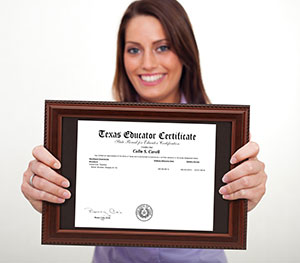Alternative Teacher Certification in Austin Texas
Alternative certification is a broad term used for non-traditional paths that lead to teacher licensure. Alternative teacher certification in Austin, Texas is generally geared toward aspiring teachers who already have a bachelor’s degree, but require additional education methods coursework and classroom experience.
Texas is among the top three states, along with California and New Jersey, which have been developing and utilizing alternative routes for teacher certification since the mid-1980s. In Texas, 24% of it’s new hires come through alternative routes, rather than traditional college-based programs.
Why choose alternative certification in Austin, Texas?
People coming into teaching through alternative certification routes tend to be older, people of color, more men, have academic degrees other than education, and have experience in other occupations. Early data indicates that individuals entering teaching through alternative routes have higher retention rates than those entering teaching from traditional college-based programs. Reasons for this are:
- Teachers obtaining alternative certification in Austin are generally older, more experienced, and have a strong commitment to helping young people learn and develop. They are making a definitive decision to teach at this point in their lives.
- Their preparation programs have provided intense field-based, in-the-classroom training, and instruction.
- They have received on-the-job training under the guidance of mentor or master teachers.
- They have the support of college faculty, schoolteachers, and their peers while actually teaching.
Alternative teacher certification in Austin, Texas is targeted toward attracting potential teachers from under-represented ethnic or racial groups, under-served geographic areas, or individuals with subject expertise in high-demand fields. By drawing candidates into a program that already have a variety of work and life experiences; the alternative certification program in Austin boosts the quantity, diversity and quality of teachers, all at the same time. Alternative certification programs are often given credit for increasing the number of minorities in the teaching force. In Texas, 9% of all teachers are minorities and 41% of those were prepared through alternative certification routes are minorities.
Alternative teacher certification in Austin is becoming a thriving service, as the need for certified teachers in hard to fill disciplines such as math and science continues to grow in and around Austin. The Austin area is constantly growing each year, which translates into new schools being built and a need for new teachers to fill growth positions is increasing. The census reports over seven hundred thousand people currently reside in Austin and is forecast to continue to grow rapidly over the next few years.
How to recruit, train, license, hire, place, and keep teachers in high-demand areas is proving to be a hot question. Alternative certification in Austin and other areas of the state are proving to be a big answer.
Why?
- Good alternative certification programs are market-driven. Prospective teachers are recruited to meet specific demands in areas where the need is greatest such as subject areas and geographic location.
- Teacher preparation programs are tailor-made. Programs are designed specifically to meet the needs of individuals who already have at least a bachelor’s degree and, in many cases, experiences in other occupations, to teach in specific areas and in specific subjects.
- Programs are job-specific. Rather than train people to teach who may or may not ever going into teaching, alternative programs in Austin recruit individuals for specific teaching positions and place prospective teachers in their jobs early in the training programs.
- The teacher certification program is field-based.
- Prospective teachers work with mentor teachers while teaching.
- Candidates usually go through the program in cohorts, not as isolated individuals.
- Most of these programs are collaborative efforts among state departments of education whose responsibility is to license teachers, colleges and universities that historically have had the responsibility for educating and training teachers, and school districts that actually hire teachers.
Download our Course Catalog for more information











